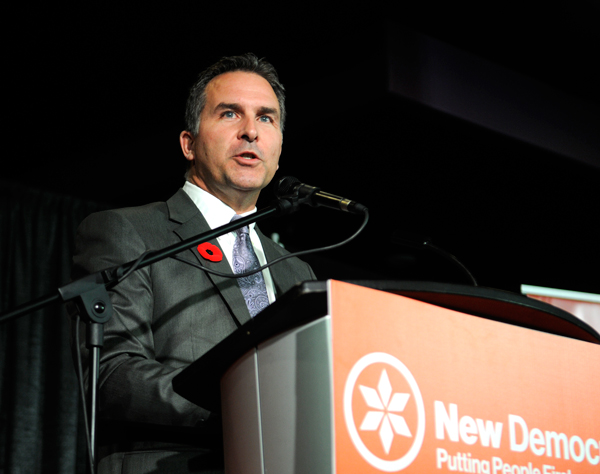
A third report on the state of education in Saskatchewan is set to be released on Monday.
The Saskatchewan Teachers’ Federation (STF) is set to release the findings from its survey, joining the Saskatchewan Party (Sask. Party) and provincial NDP in unveiling reports about what educators, students and the public think about the future of education in the province.
STF president Patrick Maze spoke briefly about his organization’s report during a speech delivered at the 2019 Saskatchewan NDP convention, which is being held in Prince Albert this weekend.
“I think you’ll find some similarities, some comparisons, but I think there’ a deeper approach in our report — not to suggest the other ones weren’t — just that there will be some differences and some similarities,” Maze told reporters following his speech.
He said the fact that there have been three reports on education published since late August is a sign that “relationships are broken in the sector.
“Teachers are not feeling listened to at this point. We want to make sure their concerns to deliver the best education to students are being answered, listened to and heard.”
Earlier this week, the NDP Education Critic Carla Beck, Leader Ryan Meili and local MLA Nicole Rancourt hosted a town hall to go over the results of their survey and to receive feedback from education staff, administrators and parents.
They heard how resources are scarce and classrooms are growing more complicated.
That same issue is at the heart of ongoing collective bargaining between the STF and the province.
The provincial government has proposed a four per cent pay increase over three years, including a one-time payment of $1,500 in the first year for all full-time teachers and two per cent wage increases in the second and third years of the contract.
But they have resisted calls from the STF to include measures relating to class size and composition in the negotiations.
Maze said Friday that they aren’t looking for a hard cap on class sizes, rather, they are looking at a way to make it easier for teachers who might be dealing with a large number of English as an additional language students, or students performing below grade level, or students with higher individual needs who need extra support.
“It all comes down to composition, and then the class size also plays into that,” he said.
“We’re suggesting an idea of …. A fund that could be accessed for those high-pressure classroom situations that divisions are able to look at and say ‘we need to address hit bud don’t have the ability under the current funding model.’”
He also said that the government has to fund education properly. He accused the Saskatchewan Party of trying to “run education on austerity budgets.
“You can’t do that. You can’t fix the concerns we have in our province, things like First Nations and Métis and Inuit education gaps … things like adopting inclusionary practices where high needs learners are put in the classroom with mainstream students — it’s a good philosophy if it’s funded appropriately. You can’t do these things on austerity budgets. You need to fund education to the levels set up for success for students.”
While the provincial government has not been willing to discuss class composition at the bargaining table, they have promised to look into the issue outside of the contract discussions through the formation of the committee.
“What I’m suggesting is we set up a provincial table and start having conversations about this, and see what we can do jointly … to start developing a framework for how to deal with a very complex issue,” Education Minister Gord Wyant said, according to the Saskatoon StarPhoenix.
But Maze insists it’s vital that concerns surrounding proper resources and class composition are addressed during the collective bargaining process.
“We want to ensure the government is willing to address them … in a collective agreement that has some teeth to it,” he said. “We want to make a difference within our students’ lives and that’s going to require more resources than what they’re bringing to the table. We know that bargaining is the mechanism through which government is held accountable.”
Responding to questions sent by the Daily Herald following the town hall, the Ministry of Education defended its funding model and supports for students.
“Saskatchewan’s 27 school divisions will receive $1.90 billion in school operating funding for the 2019-20 school year, an increase of $26.2 million over last year’s $1.87 billion budget. School divisions are in the best position to allocate these funds to meet their local student needs,” they said in a written statement.
“School division boards of education are responsible for determining staffing requirements within their jurisdictions and making the appropriate staffing decisions to meet local needs. The ministry does not direct divisions as it relates to the hiring of teachers, non-teaching support workers or educational assistants. School divisions are in the best position to assess the needs of the students in their school communities and make staffing decisions accordingly.”

